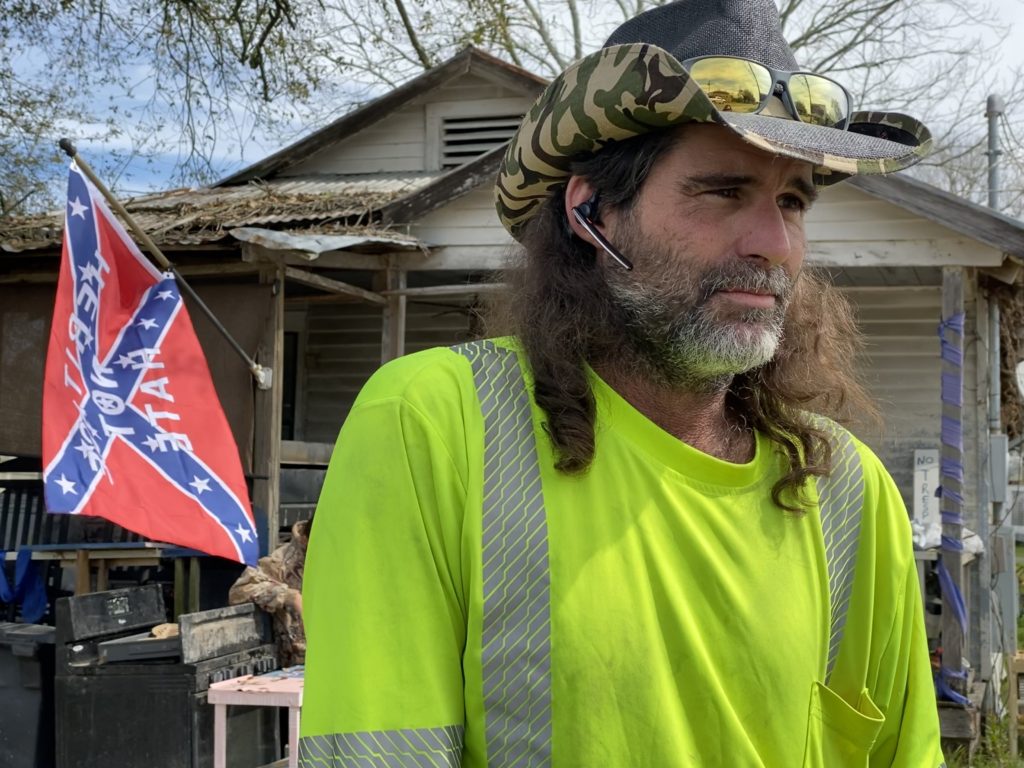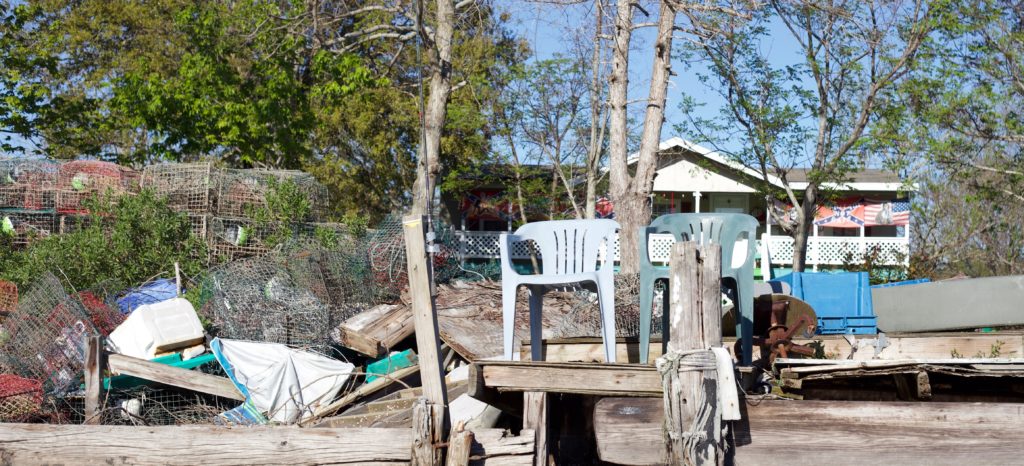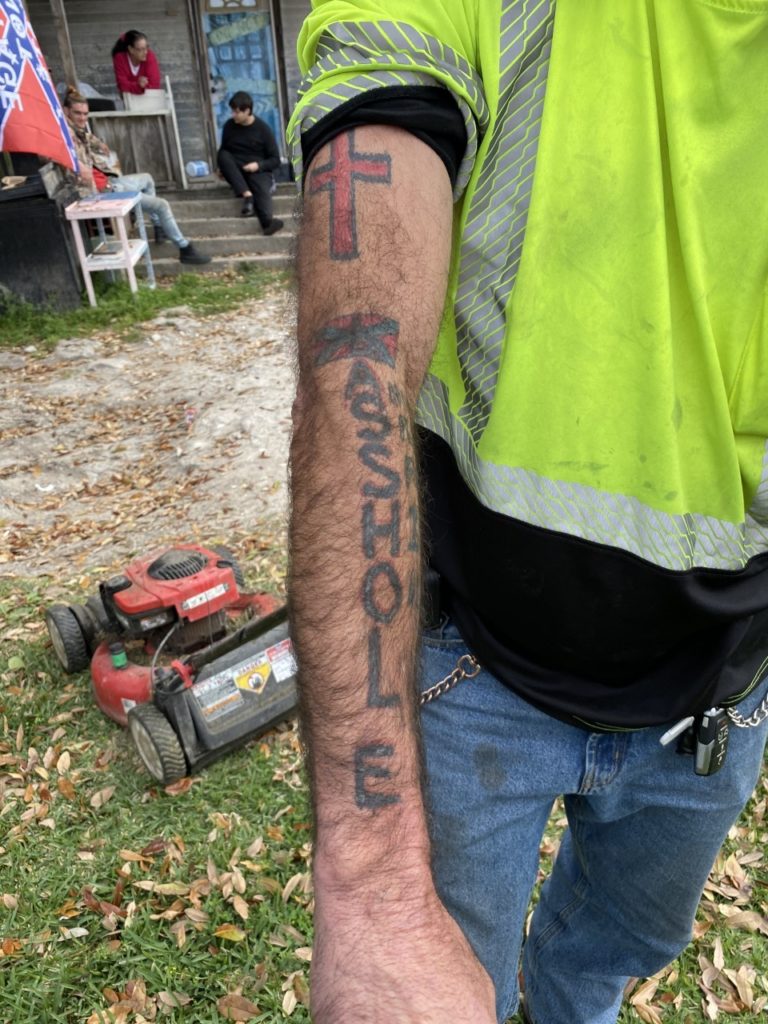The south is known for its charming hospitality, diverse music roots, spice filled dishes, and strong ties to its heritage. The flexible history within the U.S. depends on the storyteller experience and lineage. The history we know has been whitewashed – altered and condensed based on the current narrative the legislation wants to share by limiting the injustices consistently brought about on people of color in America. The heritage that defines the United States of America, specifically the south has been masked with the Confederate flag.
“If you actually look in the history books, the blacks fought for the south just as the whites did, a lot of people think it’s about slavery but it’s not about slavery,” said community member Richard Brunet.

The northern and southern states were not only separated by the Mason- Dixon Line, they were also separated by their use of African slaves. All African slaves received inhumane treatment alone with brainwashing, and displacement. Until about 1805, African slaves in the north mostly worked in homes, while African slaves in the south worked in the fields supplying billion-dollar industries for the next sixty years. In the south there weren’t thousands of slave owners, there were hundreds of slave owners that owned thousands of slaves.
“They try to take southern history out of history books, everybody thinks it’s about slavery it’s about the south fighting the north…which one wanted power,” said Brunet.
States in the south felt it was a right to own slaves, especially as a white man. Owning slaves for them was a way of life and made them feel superior to something. Confederacy in the south started after northern states wanted to emancipate slavery. When these states seceded, new flags were adopted, and states’ Casus Belli were written. There were many flags adopted amongst varying states. The Confederate flag we know of was adopted a few years after the American Civil War.
“It’s the south; I was born and raised down here, it’s my heritage,” said Brunet.
For most of America until the late 1900’s, slavery was deemed acceptable because African decedents were looked at as a free commodity, instead of human beings. Although slavery was abolished in the late 1800’s, new ways of slavery have been enforced through legislation, lineage, and culture since then.
“I’m not for the Confederate flag, for me it stands for hate and aggression that all my people went through, but to each its own as long as you don’t cross my yard with it nothing I can do about your beliefs,” said a nearby shopper Ursula Steib.
Shortly after the American civil war is when the Confederacy in the south was amplified and was revamped by white supremacists. The most notable white hate group known as the Ku Klux Klan was founded by retired Confederate veterans. This group adopted the Confederate flag and made it the instrument it is for racism today. Since the 1865, this group has terrorized non-white individuals and at the time the Republican political party. You can learn more about the founding of the hate group here https://www.history.com/this-day-in-history/kkk-founded.

“What it is, is that one person carried a Confederate flag, went to that church and killed all them black people,” said Brunet.
The states that used to be far left, and Democratic are now far right and vote Republican, if they vote at all. Brunet doesn’t participate in politics because he feels his vote won’t make a difference, and claims he supports Trump because Trump delivered more jobs in the oil industry and did everything, he said he would do.
“I’m a Trump supporter yeah but as far as voting for any presidents, nope,” said Brunet.
Racism still exist everywhere in the U.S., but southerners feel it mainly exist now up north. Confederate flags are prominent in the south and exist sparingly up north in particular communities. Brunet feels his love for the Confederate flag is not hate because of its ties with Cajun heritage, which he has both symbolically tatted on his arms.

“This whole block right here used to be nothing but family, my great grandpa used to own all this, all this used to be sugarcane fields,” said Brunet.
Brunet would consider himself a coonass, in which he provides for his family by hunting in the bayou. He hunted all sorts of animals and has caught a 5- foot alligator along the bayou in his backyard. The most important thing that the bayou has taught Brunet is —
“How to provide food for your family, how to live off the land, and learned about cooking, “said Brunet.